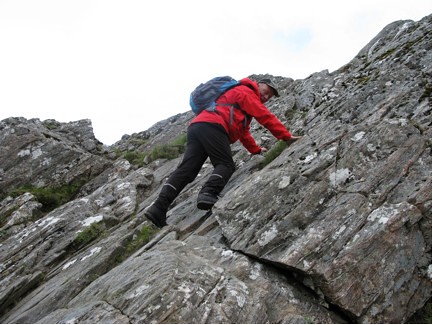- Details
- Written by John McDade SJ
- Category: Ask the Theologian
‘Sin came into the world by Man - which leaves Man in need of redemption. Yet, long before man arrived, the world was (and remains) a violent place to live. Big fish eat little fish. Lions feast on weaker animals, Crocodiles eat anything that comes along. In the dinosaur age, violence was a way of life among reptiles. Why did God expect man to be any different? Why did God create such a violent world? Why is the Old Testament so filled with violence?’ Question posed by Gerry.
First of all, clarify the nature of the language that you’re using. Is it ‘violent’ for a sheep to eat grass? I think not. For a lion to eat a sheep? More tricky. You might not like the physical tearing of limb from limb, but in principle, what the lion does is nourish itself from other items in the world, and this is no different from what the sheep does in relation to grass. Animals differ and what animals have evolved to need differs. If you have a world in which there is diversity, and Aquinas thinks that this diversity of created things is needed in order to give expression to divine goodness (‘there must be a lot of different things because no one created thing can be expressive of goodness’), then there will be a diversity of dependence built into the way things are. A lion needs a certain diet, etc, and would not have the features of its nature without certain ways of sustaining itself. I would worry about a vegetarian lion: it’s probably spent too much time reading The Guardian. So in itself, that animals feed off one another doesn’t seem to me to be problematic, and it is probably misleading to use the word ‘violent’ to describe this because this word has connotations relating to human malice not prompted by need, but by badness.
- Details
- Written by John McDade SJ
- Category: Ask the Theologian
What is the difference between faith and superstition? Question asked by Kate.
Faith is a movement of the heart towards God. It is brought about by God’s presence in us and is a gift that fulfils our nature. There are ways in which this capacity in us to trust in goodness can be distorted: we can believe lying politicians and place our hopes in what they offer, even to the point of not seeing the moral evil that impels them. (Hitler and Stalin would be prime examples.) The result is a kind of parody of religion that people sometimes call ‘political religion’, which mimics good religion by triggering the same kinds of movements within the person that grace does.
- Details
- Written by John McDade SJ
- Category: Ask the Theologian
To start, I offer you these photographs of a theologian climbing on the Forcan Ridge on a mountain called the Saddle in the Western Highlands, if only to make the point that if you want to do theology you should make sure you have careful footwork. Don’t move your foot unless you know exactly where it is going; if you want to move, make sure you have three points of contact with the rock. It’s not a good idea to be a theologian in space.
- Details
- Written by John McDade SJ
- Category: Ask the Theologian
That this talk on judgement and purgatory takes place on the eve of my birthday, and that I am rapidly heading for the mid-60s when things begin to go wrong with the body, is something that has been bothering me. What’s the effect on me? Very simply, I come to believe more and more in the immortality of the soul and to think and hope that there’s more to me than meets the eye and that this core of selfhood, whatever it is, it will not be extinguished by death. Isn’t it strange that philosophy suddenly becomes interesting as one’s knees begin to creak? Self-interest, I suspect, is a great impulse to reflection.
